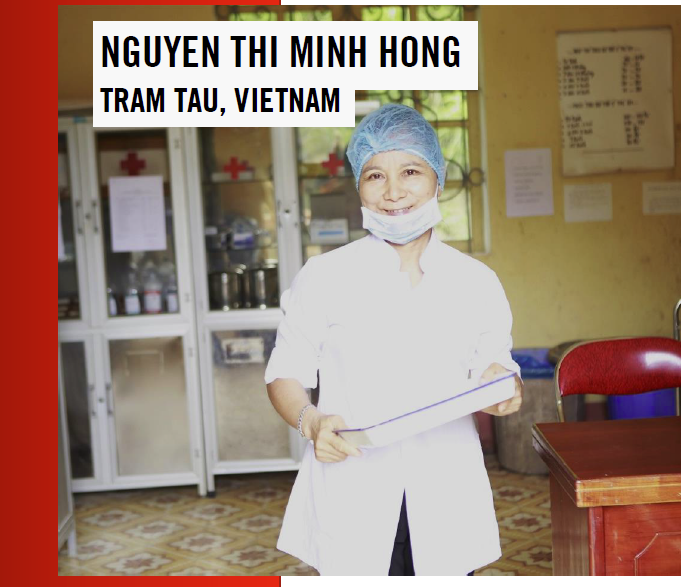Nguyen Thi Minh Hong is a winner of the International Neonatal Nursing Excellence Award 2016, for her dedicated work for newborns in the rural district of Tram Tau in northern Vietnam. To improve maternal and newborn care in Vietnam, there is an urgent need to target rural districts, where resources are scarcest and coverage of lifesaving interventions are lowest. Ms. Hong has worked for 34 years to overcome these challenges and improve care for women and babies.
What are some of the biggest challenges you face working as a neonatal nurse?
There are a lot of challenges. First of all, the terrain is very difficult. It’s hard for the patients to go to the clinic and for us to visit the patients in the communes. Another issue is the language barrier. Ninety-eight percent of the population is Hmong and most speak no Vietnamese. When I started to work in the area, I lived with a Hmong family to learn the language. The local people also have limited knowledge about health, so in many cases they shy away from going to the clinic. We spend a lot of time on communications and consultation to build trust, which has led to more mothers coming for checkups.
How do the local cultural beliefs specifically affect your work?
Because of their own customs, the local people previously did not believe in medicine. When they got sick, they would prefer praying to the gods to visiting doctors. When praying failed to help, they resorted to doctors.
How are you working with the Hmong people to encourage them to seek the care they need?
We conduct communications activities and consultations for women to change people’s behaviors. We try to combine these activities with community meetings to talk to all people, including men – because Hmong men make a lot of the decisions, including whether women can go to the clinic. We recognize we need to change men’s understanding so they can support mothers and newborns.
Despite the challenges of being a neonatal nurse, what drives you to continue your work each day?
It’s true that the work is hard and travel is difficult but I love this job. When a delivery is done I feel so happy to welcome a new baby. If the baby is not well, we take care of them and when they get healthy after our care I feel so honored and the mothers are delighted to welcome the baby as well. I love my job.
What are your hopes for the future?
I hope to continue to step up the communications activities and increase people’s understanding about the care that we can provide. In this way we hope they will come to us more often and allow us to provide better healthcare. I would also like more opportunities to improve my skills to help me provide better care.
